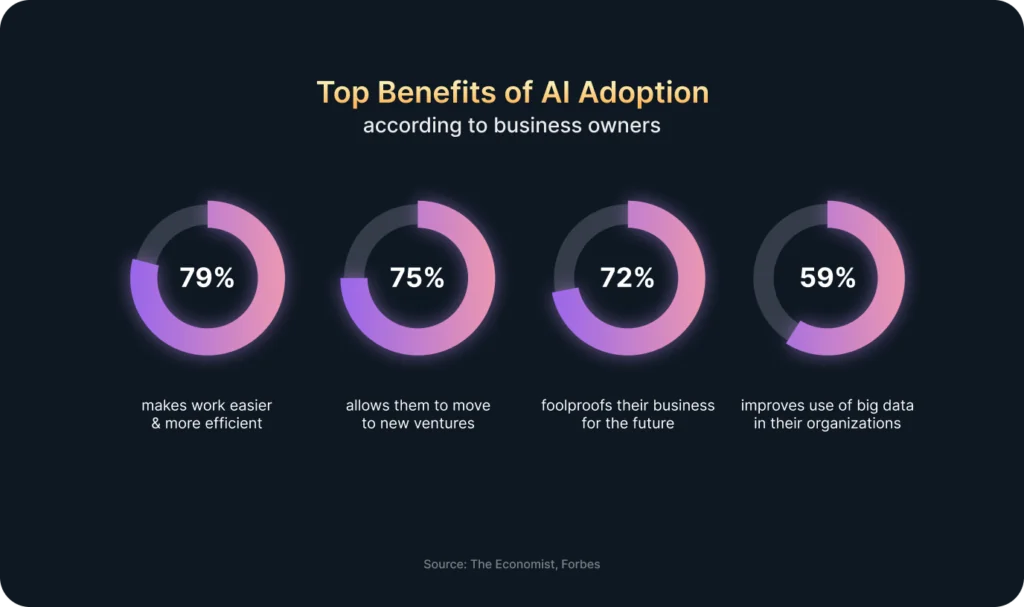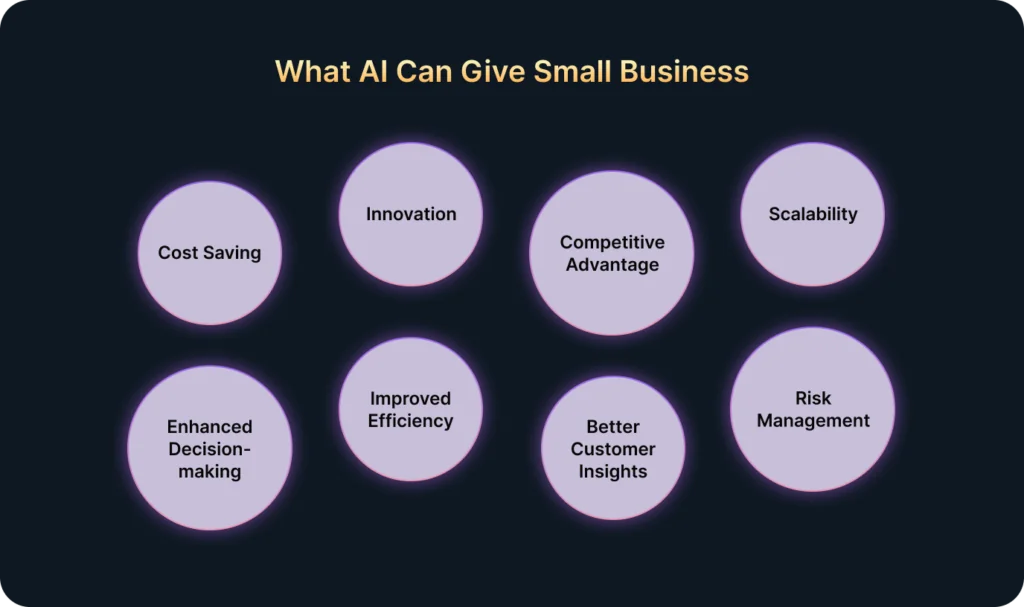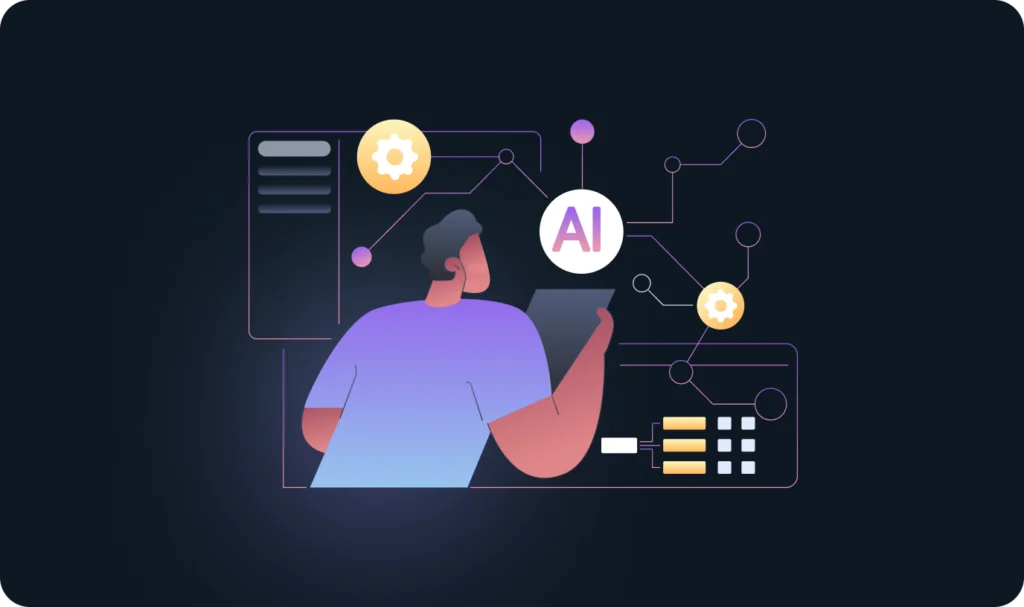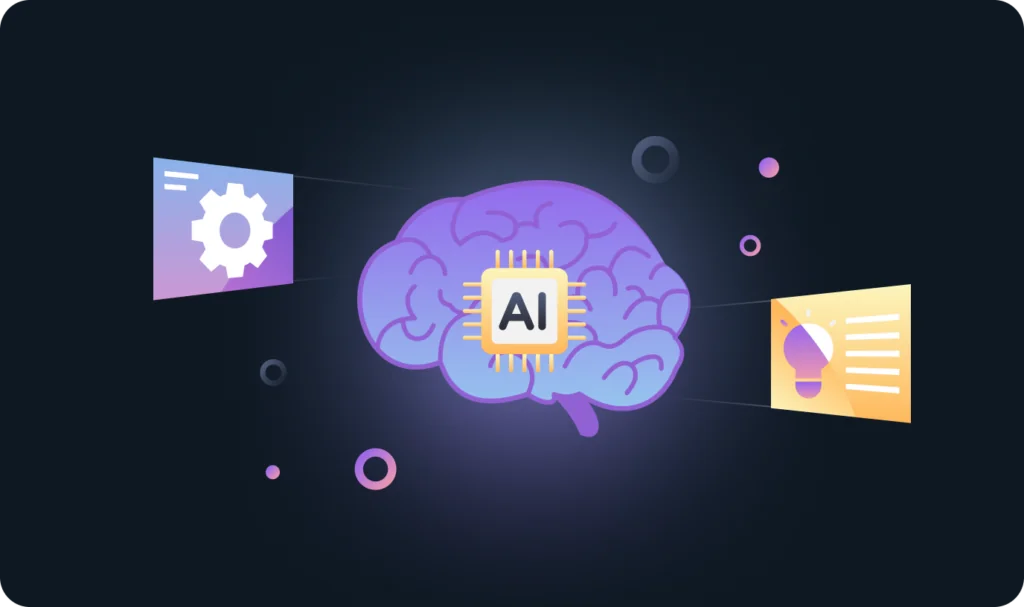With the AI bubble burst and the stock market crash on everyone’s mind, it’s no surprise that many people are getting anxious. They do have due cause because even leading market strategists and analysts aren’t sure exactly how this situation will end.
Will there be a recession? Almost definitely. Will AI drop back into the obscurity of specialized tech? Certainly not!
Therefore, anyone using AI for small businesses in any capacity should not worry about any tech issues with these solutions. In fact, the global economic recession should provide more incentive to develop and implement AI solutions. In this kind of volatile market, a small business needs every advantage to actually stay in business.

When Will the AI Bubble Burst?
Since the COVID-19 pandemic, there have been many discussions about the global economic crisis. However, the stock market crash came as a shock anyway, and many leading experts and market strategists commented on it. The good news is that if we look at authoritative sources like Bloomberg, the expert prognosis is not favorable, but it’s not panic-inducing either.
Yes, economists are concerned, and there is a chance this is just the beginning of a massive recession. However, some leading experts, like Diana Iovanel, a senior markets economist at Capital Economics, say that instead of the AI bubble burst, we should expect its strengthening after this shakeup. The level of investment in AI technology by leading companies, such as Microsoft and Apple, continues to grow. Moreover, the technology itself evolves and attracts more users every day. Therefore, while a global recession might be an issue for the world economy, AI will remain one of the leading market forces for years to come.

How to Use AI for Small Business to Stay Safe in the Volatile Market?
The truth of the matter is that as a small business owner, you will be affected regardless of whether the AI bubble burst comes to pass. Events like stock market crashes are indicators of volatile global economic processes. This volatility alone is a major threat to the livelihood of small business owners worldwide. The best way to cope with this danger is by managing risks, and AI is a handy helper for this specifically.
Using AI for small business can help you achieve crucial outcomes, such as:
- Cost reduction
Using AI tools and chatbots, you can automate processes and even replace some outsourced services, like customer support. - Innovation and competitive advantage
By implementing innovation, you can increase your value proposition for your customers. For many startups, innovation in the process itself becomes a business. For example, check out our case study of an insurance platform with a widget that can remake the entire process of buying a policy online. - Scalability and enhanced efficiency
Using AI for small business gives you some freedom to scale up or down as needed with minimal disruptions to the overall business processes. Moreover, automating some of the routine tasks reduces human error and frees up time for your qualified employees. They can use this time to work on solutions that will help increase your business resilience. - Better decision-making
AI goes hand in hand with data analytics services, which can unlock your access to invaluable insights. Making decisions based on concrete data will enable you to achieve the best possible results.
Learn more about practical implementations of this tech in our article How to Use AI in Small Business.
Bottom Line: Reduce Business Risks and Increase Resilience with AI
We don’t know when or if the AI bubble burst will occur. However, we know for sure that the practical value of implementing AI solutions in business processes will only grow. As the markets grow more competitive, the one who has an edge has the best chance of survival. Therefore, whether you launch a chatbot to enhance customer service or supplement your security with AI, you are moving in the right direction.
Business owners need to be proactive to stay ahead. In these times, this means using cutting-edge tech to its maximum benefit.
Are you interested in learning more about the topic? Check out more of our articles about AI and ideas on how to implement it for various businesses here.
If you are ready to start implementing AI solutions in your own company, set up a free consultation! Our experts will make a detailed analysis of your business and ideas. Then, we’ll give you a proposal on how to achieve the best results with the project.




